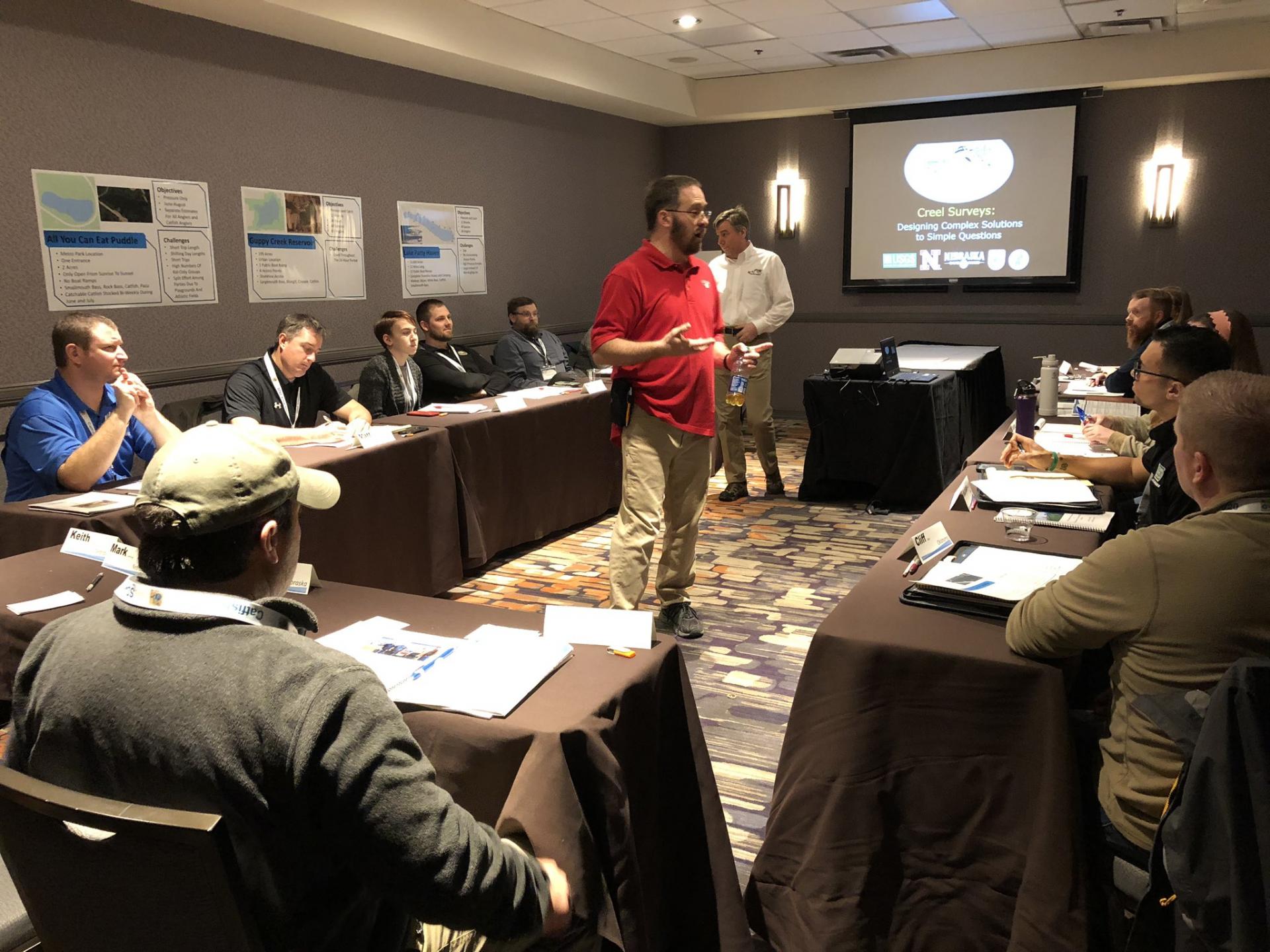Classes
Chris teaches several undergraduate and graduate level classes. The description of the classes and the most recent syllabi are listed below.
|
NRES 315 –Human Dimensions of Fisheries and Wildlife Management. Fall Semesters. This undergraduate course is designed to introduce students with the basic concepts and ideas relevant in human dimension of natural resource management. This course is divided into three sections. The first section focuses on the foundation of human dimensions by introducing the student to the theories that underlie the field. The second section focuses on the methodological approaches in human dimensions research including survey design and analysis. The third section will focus on applications of human dimensions research into consumptive and non-consumptive aspects of fish and wildlife management, with attention to how the field continues to develop. |
|
NRES 323–Natural Resource Policy. Spring Semesters. This course is designed for undergraduate students in a variety of majors, including natural resources, natural resource and environmental economics, and environmental studies. Students from other disciplines who have an interest in environmental and natural resource policy are also encouraged to take this course. As the human population, resource consumption, and land use pressure increase, the policies for management and protection become more important and more challenging. This course will introduce students to the political processes, participants, and programs involved in formatting natural resource policy in the United States. |
|
NRES 498/898 - Survey Research and Analysis: Applications in Recreation and Human Dimensions. Summer. This course is for undergraduates and graduate students interested in using survey instruments to collect social information in recreational and human dimensions studies. We discuss the science of survey design and analysis using real-world examples from survey data collected in parks, recreation, and human dimensions research. We highlight theories from a variety of disciplines (e.g., social psychology, sociology, economics) that are often used by social science researchers in the natural resources. We will discuss how survey research can inform natural resource management decisions and policy issues by attempting to describe and predict human thought and action toward natural environments. This class approaches survey research based on the understanding that one of the best ways to learn research methodology and statistics is to become directly involved in scientific inquiry. As such, we will devote a considerable amount of time to analyzing data from general public surveys and population-specific surveys. |
|
NRES 800 – Sampling, Data Management and Visualization. Fall Semesters. This graduate course is designed to introduce students to implement best practices for scientific computing. Practice with a scientific workflow from the design of the sampling scheme, through generation of the data in the field or lab, up to the point of analysis. Understand cognitive constraints on visualization. Use modern software tools to analyze and produce publication quality data visualizations. |
|
NRES 898 – Special Topics: How Did They Do That? A Graduate Seminar In Data Analytics Using R. Occasional Spring Semesters. This graduate course will provide students with the skills to understand and adapt analytic techniques presented in peer-reviewed literature to their research. The course will focus on use of the R statistical language in applications relevant to ecology, biology, fisheries and wildlife, grasslands, forests, aquatic habitats, and human dimensions of natural resources. The topics covered are student driven. Emphasis will be placed on developing conceptual and practical understanding of how to apply statistical techniques with real-world data, checking assumptions, exploratory data analysis, presentation of results, and developing sound coding skills. A working knowledge (e.g., ability to read data in to R, data manipulation, graphing) of R is required. |
Workshops

From time to time, we teach short workshops during breaks, at scientific meetings, or for Master Naturalists. These workshops are for students, scientists, and practitioners. We will provide links to the materials that we cover in some of our meetings below as they become available.
We have led several introduction to R workshops that are intended to give a basic background to the analysis software and expose participants to the environments, good coding practices, and the development of sound figures and tables. We have also held "creel design workshops" that expose participants to the good practices of objective-based in-person angler surveys. Future workshops will also cover analysis of creel data.